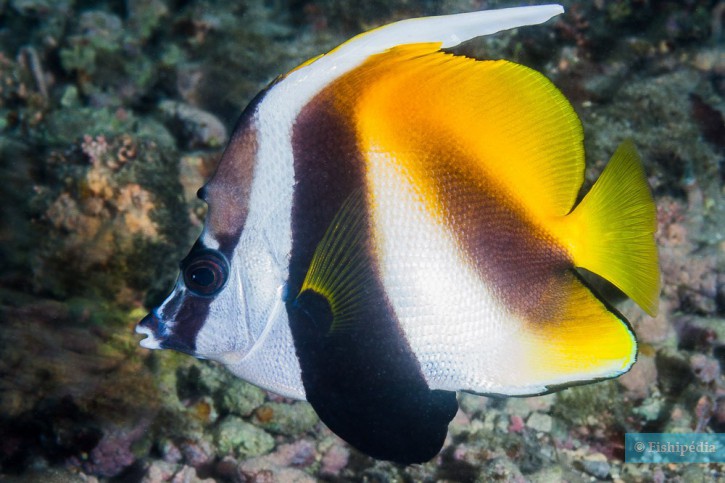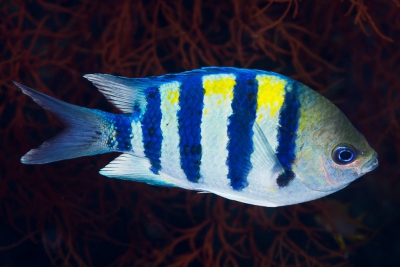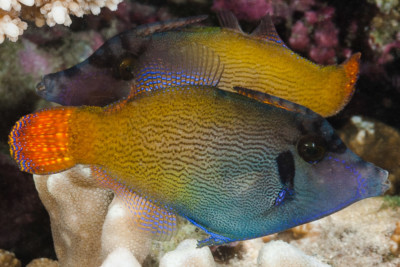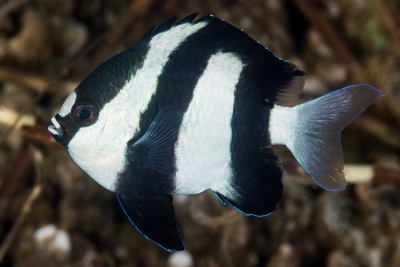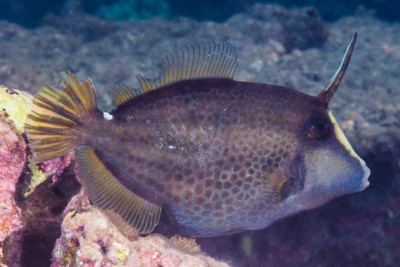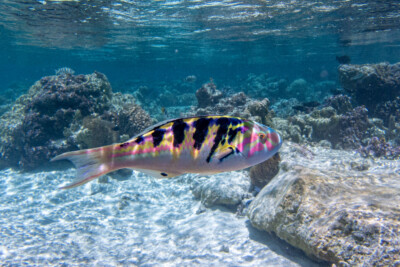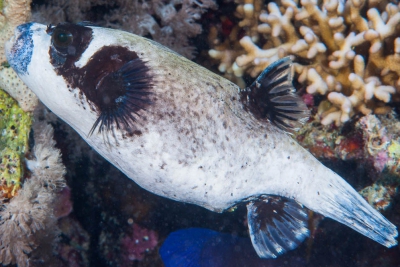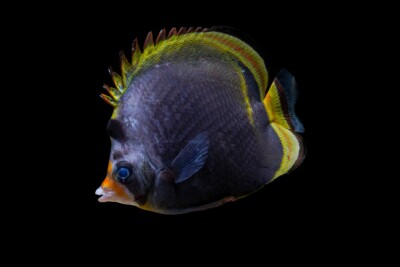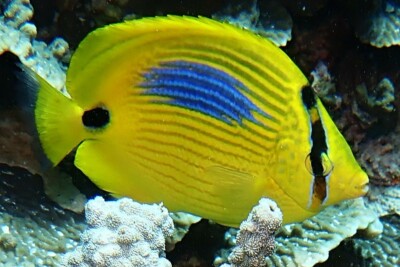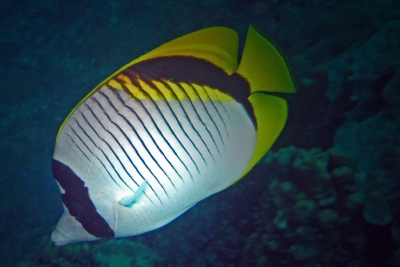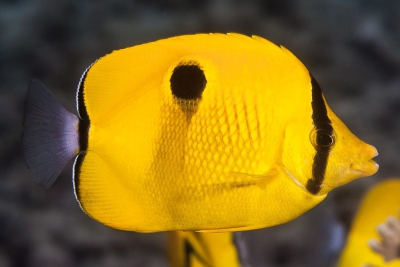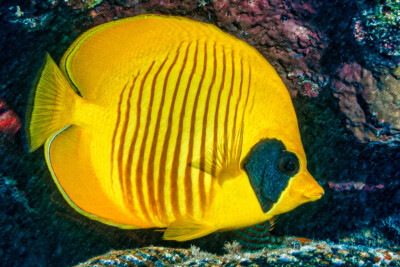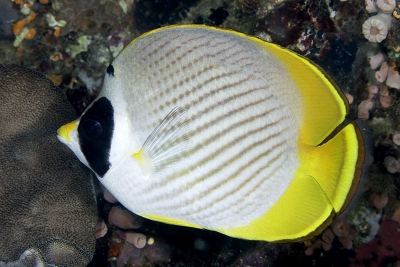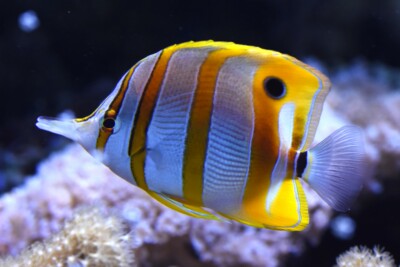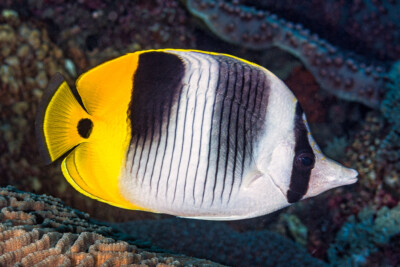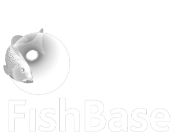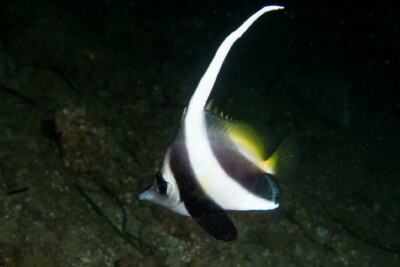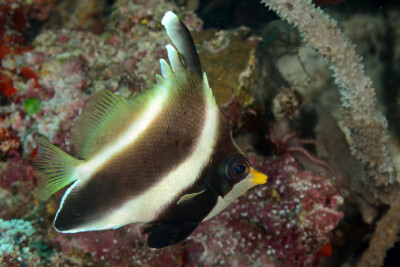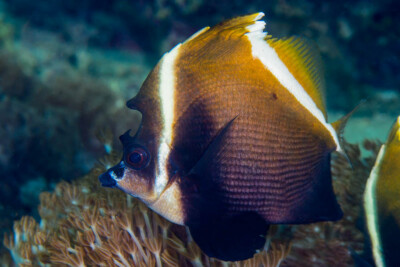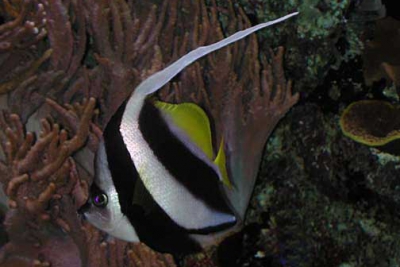unicorn pennant coralfish
| Scientific name | Heniochus monoceros |
|---|---|
| Descriptor | Cuvier |
| Year of description | 1831 |
| IUCN category (World) | LC |
| Family | Chaetodontidae |
| Genus | Heniochus |
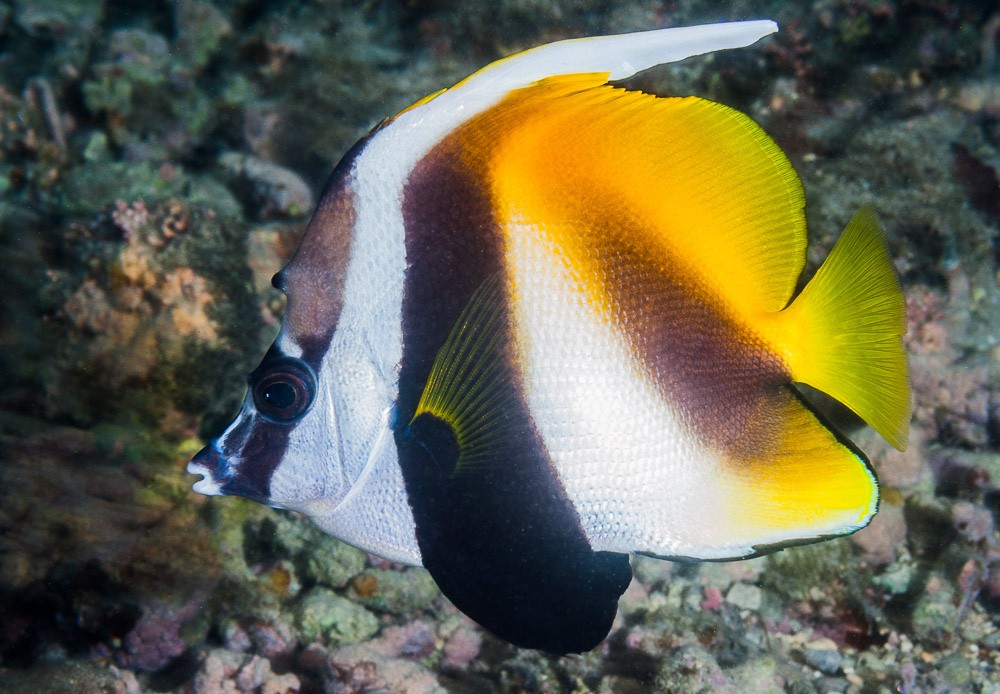

Introduction
Heniochus monoceros, more commonly known as the unicorn pennant coralfish, is a tropical fish native to the Coral Sea, Tasman Sea, Philippine Sea, Red Sea, Southeast Asian seas, Indonesian seas, Indian Ocean, and western tropical Pacific Ocean.
Who is it?
Morphology
-
Average size15 cm
-
Maximum size25 cm
-
Longevity10 year
-
ShapeTriangular
-
Patternvertical stripes
-
Average size15 cm
-
Maximum size25 cm
-
Longevity10 year
-
ShapeTriangular
-
Patternvertical stripes
How to recognize This fish ?
The unicorn pennant coralfish is tricolored with a predominantly yellow, black, and white body.
This species also has vertical stripes of black and white color.
Sexual dimorphism
Dimorphism not specified.
Behaviour & Life cycle
-
dietcarnivorous
-
Sociabilityliving as a couple or in a group
-
territorialNo
-
Way of livingdiurnal
The unicorn pennant coralfish is a pair-living or group-living fish that naturally inhabits mid-depth and close to the bottom. It is a species with a calm temperament.
Generally, it is an independent fish that pays little attention to other species.
Reproduction
-
Reproductionovipare qui pond en eau libre
The unicorn pennant coralfish is an oviparous fish that spawns in open water.
Harmless species
This species does not represent any particular threats to humans when encountered in its natural environment.
Origin and distribution

What is its habitat?
Natural environment characteristics
-
Temperature22 - 24 °C
-
Depth2 - 30 m
-
FlowMedium
Biotope presentation
The unicorn pennant coralfish is most commonly found at depths less than 30m. However, it is not impossible to find this fish at other depths.
The substrate is generally composed of sand and rocks.
Species of the same biotope
To go further
Sources & Contributions
Participation & Validation
The Fishipedia team and specialist contributors are committed to providing high-quality content. However, although the information comes from scientific sources or testimonials from specialists, the cards may contain inaccuracies.

Patrick Chartrer
Translation
Translation done with the valuable contribution of our translators, who make this information available to a wider audience. We sincerely thank them for their commitment.
Template and content © Fishipedia - Unauthorized reproduction without prior request - ISSN 2270-7247 - Last modification 11/11/2023
© Fishipedia.fr 2024
Scientific partners
Tags
Species of the same family
Same genus
Species of the same biotope
